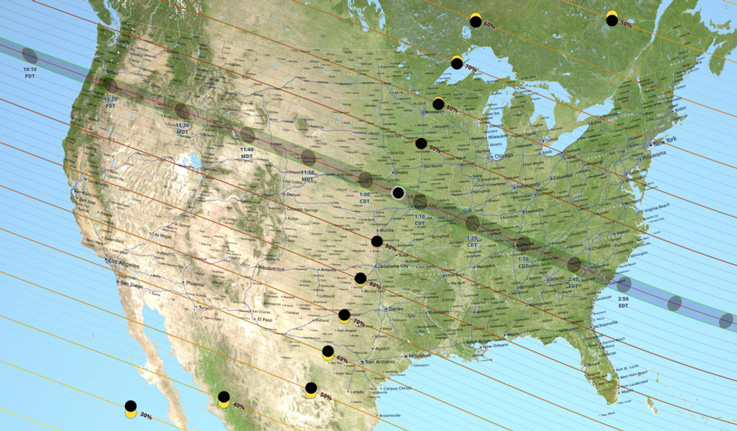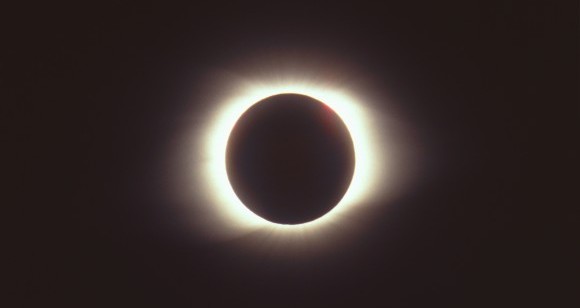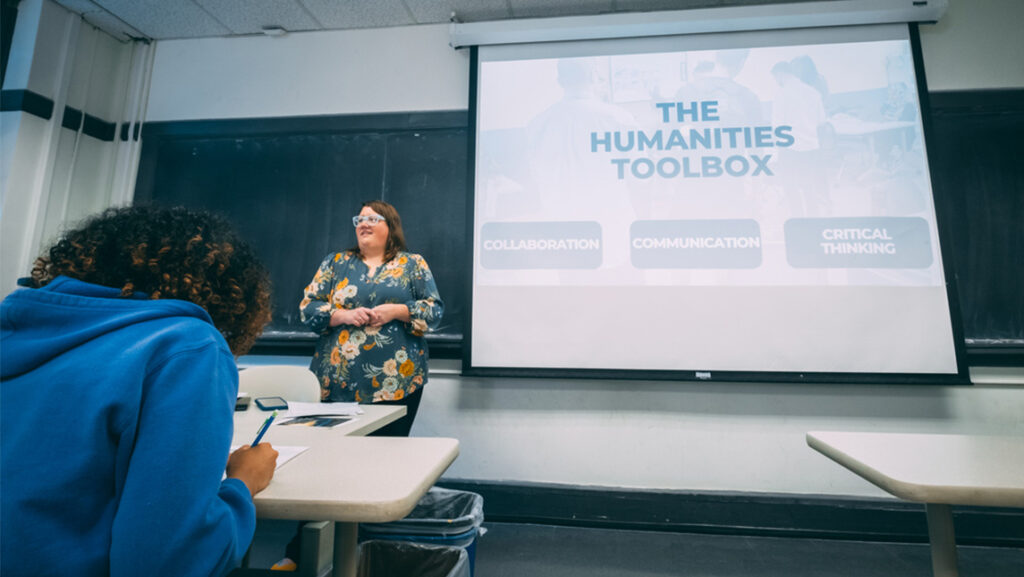Aug. 21 will be a historic day for American astronomy. Hotels in cities and small towns on the total eclipse path have been booked up for a year, and eclipse viewers will also fill RVs and campsites across the country, from Oregon to South Carolina.
a historic day for American astronomy. Hotels in cities and small towns on the total eclipse path have been booked up for a year, and eclipse viewers will also fill RVs and campsites across the country, from Oregon to South Carolina.
“The last solar eclipse I saw was in October 2014, when I was visiting the NASA Jet Propulsion Lab in Pasadena,” said Dean of the College of Arts and Sciences Dr. John Kiss. “What makes this event exciting is that it is the first total eclipse to cross the entire continental United States in almost a century.”
While Kiss, who has recently launched seedlings into space, will see the partial solar eclipse from campus, other UNCG researchers will travel far and wide to reach the path of totality.
Astronomy professors Dr. Anatoly Miroshnichenko and Dr. Steve Danford (emeritus) will both journey to Nebraska, where the chances of clear weather are higher than in the southeast. Miroshnichenko will go to a small town approximately 50 miles south of Lincoln, an area that will experience 2 minutes and 35 seconds of totality. Danford, who has been giving eclipse lectures in North Carolina totality cities such as Highlands, will venture via RV more than 200 miles farther west in Nebraska to an open field 80 miles above North Platte.
Professor of Biology Dr. Olav Rueppell will travel with three students — Prashan Walker, Saman Baral and Carlos Vega-Melendez — to Clemson University to perform an experiment about honey bee foraging behavior, in collaboration with Dr. Jennifer Tsuruda, cooperative extension apiculture specialist in South Carolina. Clemson is in the path of totality and will experience midday darkness for 2 minutes and 37 seconds.
“We know that honey bee foraging activity during solar eclipse events decreases, but the details are unknown,” explained Rueppell. “Our study is designed to shed light on how colony status affects honey bee foraging decisions. Specifically, we will use this extraordinary event of the solar eclipse to test whether honey bees that are in greater need of food are more reluctant to give up foraging activities when conditions become unfavorable – dark, cold and a lack of the sun compass for orientation.”
The researchers will monitor the bees’ foraging activity throughout the eclipse and compare colonies with varying levels of resources.
“The results will reveal how flexible honey bee behavior responds to hive internal and external conditions, which may be important for honey bees to adapt to the changing world they are living in,” said Rueppell.
The world will completely, yet briefly, change for the honey bees at Clemson at 2:37 p.m., just a few minutes before a momentary twilight settles over UNCG, at 2:42 p.m.
By Susan Kirby-Smith
More information about the eclipse may be found at this UNCG web site.
Repost from http://ure.uncg.edu/prod/cweekly/2017/08/15/bees-rvs-total-eclipse-heartland/



